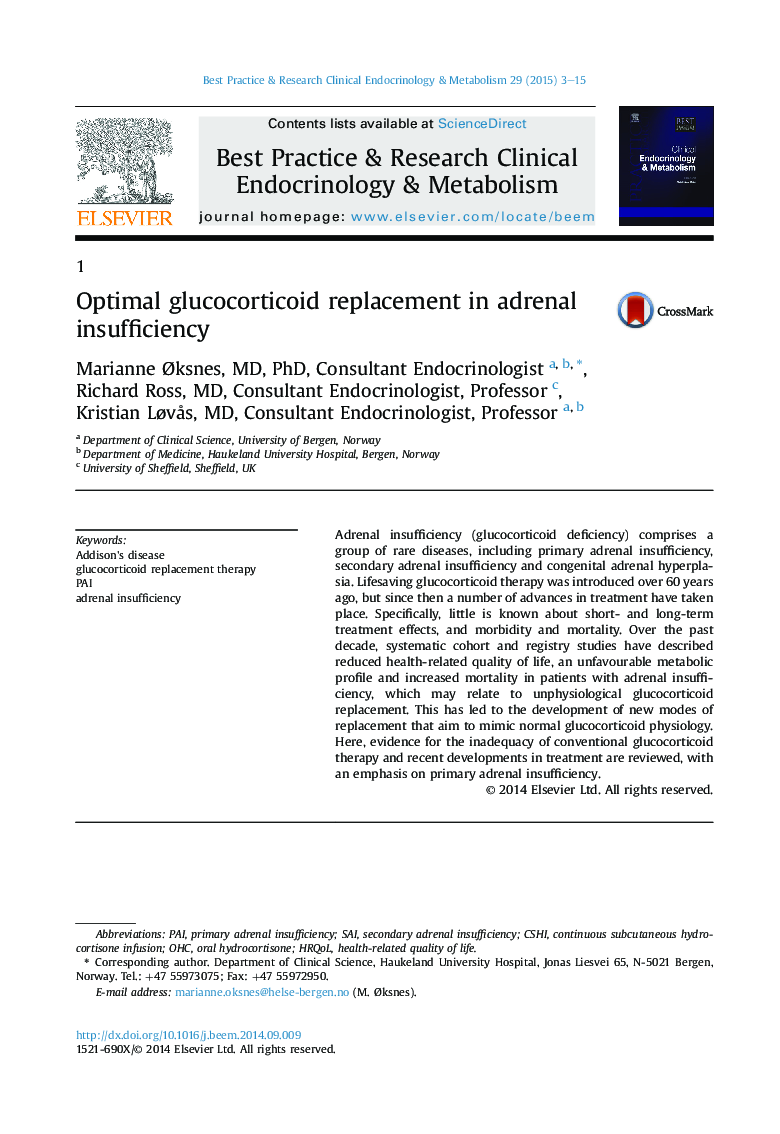| Article ID | Journal | Published Year | Pages | File Type |
|---|---|---|---|---|
| 2791550 | Best Practice & Research Clinical Endocrinology & Metabolism | 2015 | 13 Pages |
Adrenal insufficiency (glucocorticoid deficiency) comprises a group of rare diseases, including primary adrenal insufficiency, secondary adrenal insufficiency and congenital adrenal hyperplasia. Lifesaving glucocorticoid therapy was introduced over 60 years ago, but since then a number of advances in treatment have taken place. Specifically, little is known about short- and long-term treatment effects, and morbidity and mortality. Over the past decade, systematic cohort and registry studies have described reduced health-related quality of life, an unfavourable metabolic profile and increased mortality in patients with adrenal insufficiency, which may relate to unphysiological glucocorticoid replacement. This has led to the development of new modes of replacement that aim to mimic normal glucocorticoid physiology. Here, evidence for the inadequacy of conventional glucocorticoid therapy and recent developments in treatment are reviewed, with an emphasis on primary adrenal insufficiency.
